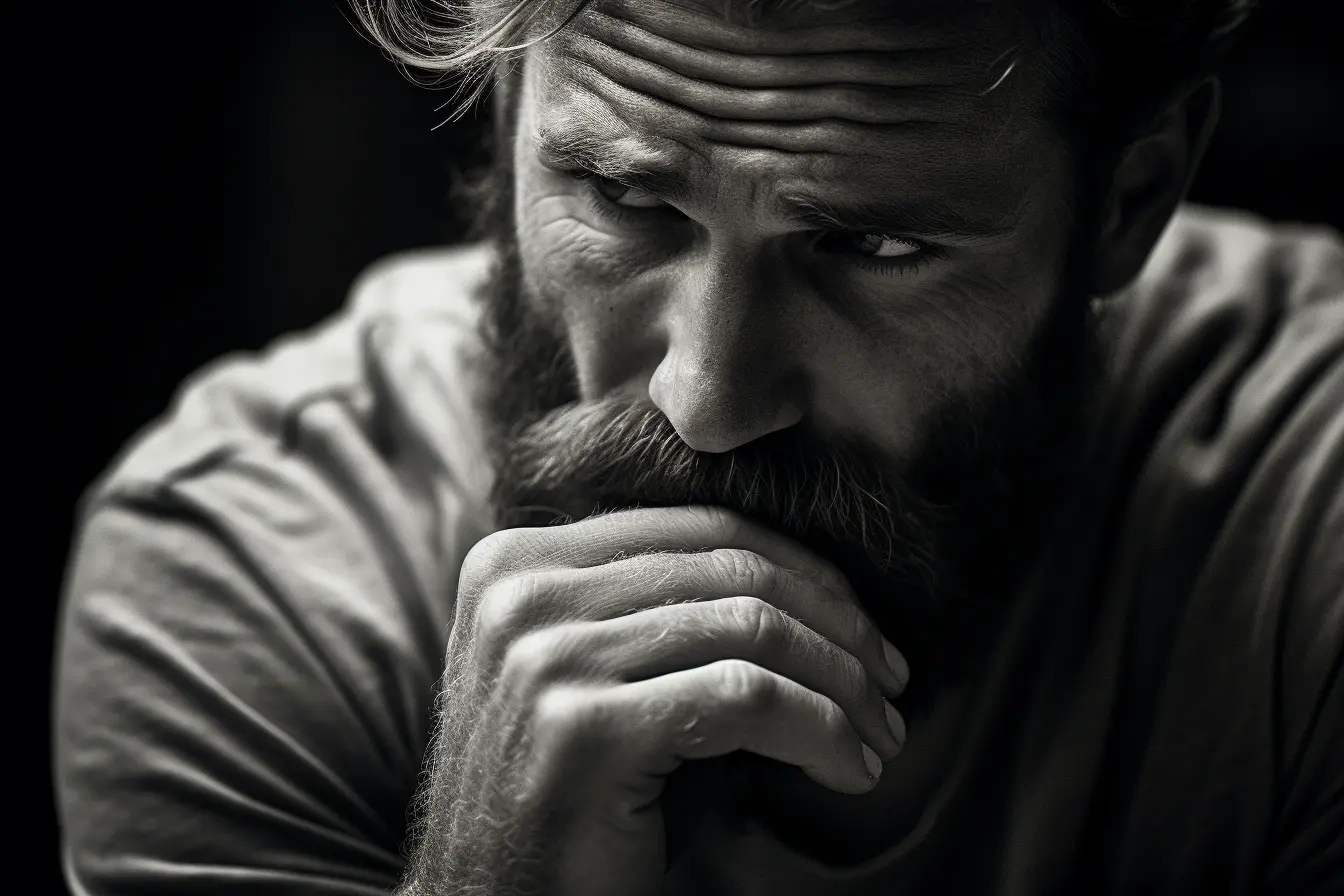Have you ever pondered phrases such as “Man up!” and “Don’t be a girl”? They may appear harmless, but they cast light on a cultural phenomenon known as toxic masculinity with deep roots. It is a societal norm that males should always be rigid, emotionless, and dominant. However, why have these stereotypes endured? And at what cost to males as individuals and to society as a whole?
When one peels back the layers, it becomes evident that these notions are deeply ingrained from a young age. Boys are raised with tools encouraging aggression and physical strength, while emotions and sensitivity are frequently relegated to the background. Over time, these lessons solidify, almost becoming second nature, influencing behaviors and decisions.
The repercussions of toxic masculinity are extensive. From interpersonal relationships to professional dynamics and, most importantly, men’s mental health, these ingrained norms play a crucial role. It requires introspection, comprehension, and collective action to address them.

The Histories of Masculinity
Throughout history, males have frequently been cast in particular roles. They were the warriors of ancient civilizations, the noble knights of the Middle Ages, and the diligent breadwinners of modern families. Even as these roles evolved, men were expected to be stoic, emotionless, and resilient.
However, this narrative conveniently disregards the complexity of males. Men possess a diverse tapestry of emotions, aspirations, fears, and weaknesses like all humans. The historical depiction restricts them to a one-dimensional space, robbing them of their complete human experience.
This historical event still affects present-day norms and expectations. Understanding this historical context is crucial to creating a new path forward.
Manifestations of Dangerous Masculinity
If one knows where to look, toxic masculinity is pervasive in contemporary society. The signs are pervasive, ranging from blockbuster action films in which the male protagonist never displays any indication of vulnerability to everyday situations in which schoolboys are teased for crying.
It is not only about overt displays of aggression or dominance. It also involves more subtle cues. It’s the father who tells his son, “Boys don’t play with dolls,” the coach who maintains that pain is merely a “state of mind,” and the friend who jokes, “Real men don’t eat quiche.”
These behaviors and beliefs are not, however, inherent. They are acquired through exposure to a culture that has propagated them for generations. As with any taught behavior, these beliefs can be unlearned and replaced with healthier, more constructive ones.
The Relationship Between Harmful Masculinity and Mental Health
Investigating the realm of mental health reveals a concerning correlation. Many mental health issues men confront can be traced back to toxic masculinity pressures. Insistence on being the stoic provider, the unwavering rock, often prevents males from seeking assistance even when in dire need.
This constant pressure to conform can lead to feelings of inadequacy, self-doubt, and social isolation. For example, a financially struggling man may feel emasculated because he believes he is not fulfilling his “role.” This can result in anxiety, tension, and depression.
Ignoring or denying one’s emotional reality is potentially explosive. Men are at an increased risk for mental health disorders, substance abuse, and suicidal tendencies if they ignore their dynamic requirements and suppress their vulnerabilities.
Emotional Repression: An Unhealthy Norm
The adage “real men don’t cry” has caused more damage than many people realize. This profoundly rooted toxic masculinity belief promotes emotional suppression, which is detrimental to mental health. When males experience emotional pain, such as heartbreak or grief, they are frequently advised to “move on” or “shake it off.”
However, emotions are not like on/off controls. They are vital components of the human experience. By discouraging emotional expression, society unwittingly prepares males for inner conflict. The accumulation of unprocessed emotions can result in psychological distress.
Furthermore, emotional suppression has effects beyond the individual. It also impacts relationships. Shared vulnerabilities frequently forge intimacy, comprehension, and profound connections. We deprive males of meaningful human connections by denying them the ability to express their emotions.

The Pressure to Conform: The Role of Society
The role of society in shaping individual behaviors and beliefs is significant. Boys are bombarded with messages about how “real men” should conduct themselves from a young age. Everyone has an opinion on masculinity, including the media, colleagues, and family members.
This relentless assault can be mentally draining. Constant pressure exists always to be the toughest person in the room, never to exhibit weakness, and to always be in charge. What is the price of not fitting this mold? Rejection, isolation, and frequently self-doubt.
However, it is crucial to note that these are merely social constructions. They are not definitive indicators of a man’s identity or worth. Recognizing these pressures for what they are and pursuing one’s definition of masculinity constitutes breaking free.
Men’s Personal Experiences Recounted in Actuality
John constantly felt the burden of expectations. As a banker in a competitive metropolis, displaying vulnerability was considered a weakness. Alex, a compassionate elementary school teacher, was frequently ridiculed for being “too soft” or “not manly enough.” Even though these stories are distinct, they reflect a more prominent theme: the toxic masculinity social cage.
It is disheartening that these narratives are not uncommon. Men from all spheres of life struggle daily with these obstacles. They navigate a world that continually evaluates their “manliness” and where emotional vulnerability is sometimes met with skepticism or contempt.
However, there is hope in sharing these accounts. As more males share their experiences, it paves the way for comprehension, empathy, and, ultimately, change.
How some men are breaking the mold
Change is never simple, but seeing so many men challenging the status quo of toxic masculinity is gratifying. There is a discernible shift in the narrative, whether celebrities discuss their mental health struggles or everyday champions advocate for emotional openness.
It’s not just about personal development. It involves generating a ripple effect. When one man raises his voice, it encourages others to do the same. Over time, these individual waves of change can converge to form a tsunami.
The road ahead is lengthy, but travel has begun. As society witnesses these transformational tales, there is optimism that the next generation of boys will grow up in a world without being constrained by outdated masculine norms.
The Advantages of Expressing Emotions
Each emotion adds dimension and nuance to the human experience, like a palette of different hues. The results are profound when males are encouraged to embrace their emotional spectrum. In addition to gaining a deeper comprehension of themselves, their relationships also flourish.
Emotional expression can serve as a bridge, nurturing mutual comprehension and closeness. These vulnerable moments frequently strengthen relationships, whether sharing fears, aspirations, joys, or sorrows. In addition, expressing emotions can be therapeutic, releasing pent-up emotions and tensions.
Acceptance of emotions does not diminish masculinity. It enhances it, allowing males to live fuller, more genuine lives.

Support and resources for men affected by toxic masculinity
Thankfully, the modern world provides males with a variety of support resources. Expanding support structures include therapy sessions specializing in male emotional health and online communities where men can share their experiences.
However, it is about more than just formal channels. In challenging the status quo, grassroots movements, community gatherings, and even personal journals play pivotal roles. They provide men with judgment-free spaces to investigate their vulnerabilities.
Seeking assistance is a sign of fortitude, not weakness. Men can embark on self-discovery, rehabilitation, and transformation by utilizing these resources.
Creating a Healthier Future for Men
The future is malleable; our actions and beliefs shape it. As societal awareness of the adverse effects of toxic masculinity grows, there is an opportunity to reframe the narrative. This redefinition is not about eliminating conventional masculine characteristics but expanding the spectrum and recognizing that strength and sensitivity coexist.
This voyage involves all individuals. Parents can foster emotional openness in their sons; educators can promote inclusive curricula that challenge gender stereotypes; and we can be more conscious of the language we employ, not to perpetuate harmful norms.
The fantasy? A future in which every boy grows up knowing his value is not contingent on outmoded notions of masculinity but on his distinct, genuine self.
Concluding remarks
Toxic masculinity affects more than just males. Societal issues influence our collective consciousness, shaping our behaviors, beliefs, and relationships. It necessitates a concerted effort, a willingness to challenge age-old norms, and the aspiration to create a world where every person can flourish without the burden of limiting stereotypes. As we expose the adverse effects of toxic masculinity, we set the groundwork for a more inclusive, empathetic, and holistic conception of what it means to be a man.

